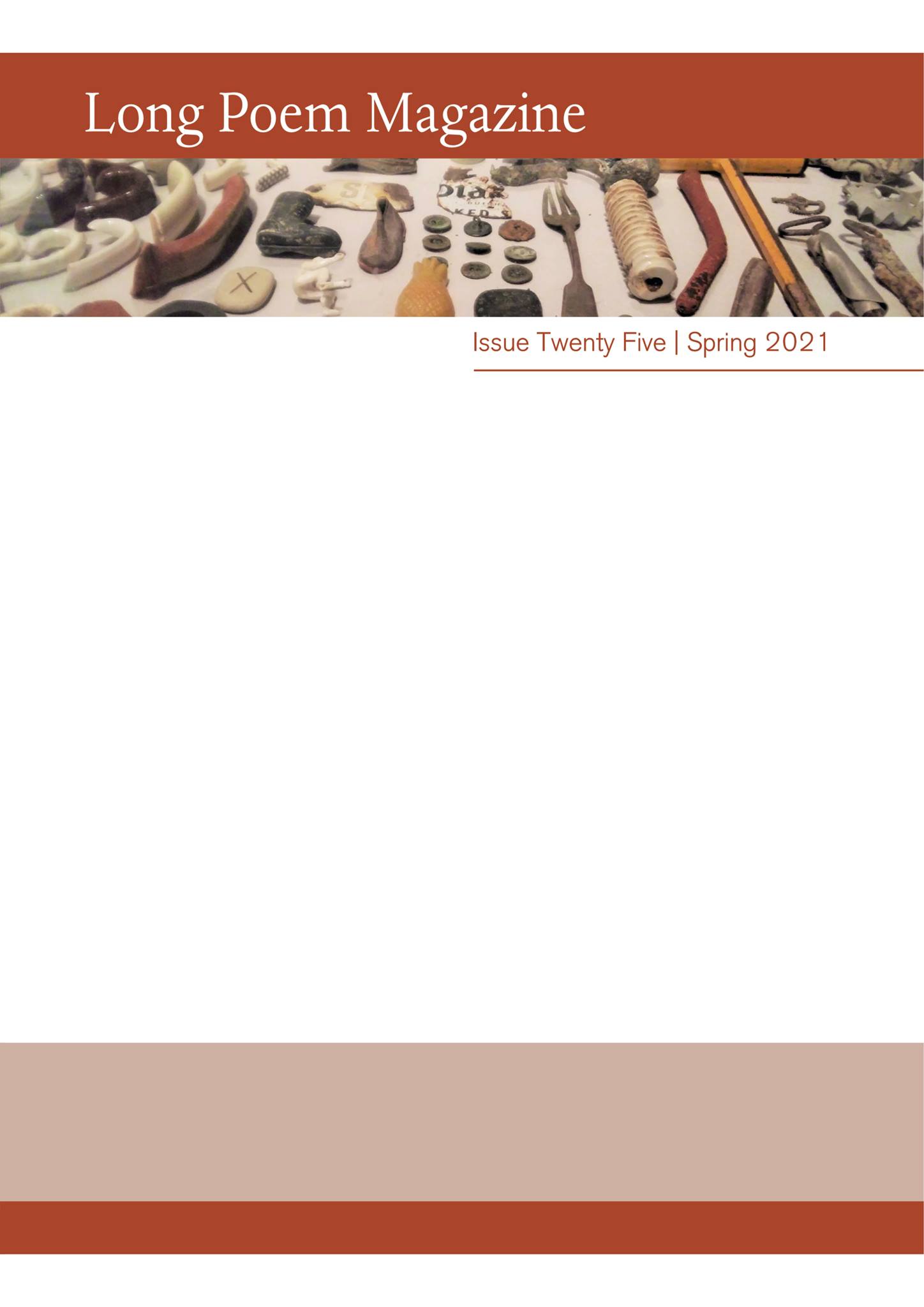Life hurts – what we bear as individuals, as nations; the harms that are done, what we inherit, what we live through, mortality ever present, no more so than in the last 15 months, the damage affecting us both internally and externally.
Liam Guilar, in his poem ‘Myself as Witness’, set in 449 AD, foregrounds historic barbarism in the voice of an unnamed narrator, ‘bought for a piece of gold’, who is threatened by the slaver:
The corpse you saw so perfectly impaled
got drunk and boasted what he’d do
so we did it to him with a greased and sharpened stake.
‘History’ we are told ‘is only, always, people…’. Rowing boats
become the ancestor
of Golden Hind and Victory
and all the little boats of England
bombed and burning in the waters off Dunkirk.
In her introduction to her poem, Jessica Bundschuh cites ‘the heroic Emanuel Ringelblum, the Warsaw Ghetto historian who buried notes about his community before he was executed with his son, Uri’, who becomes the boy in her poem who finds ‘The Bread Notes’. ‘To spite Italian fascists,’ we are told, ‘we/revere our lost fairy tales: /Aschenputtel, Froschkönig,/Hansel und Gretel.’ Let us not forget.
As Iain Britton observes ‘you hand out poppies/to survivors – to refugees – the landless’ (Should i Show her Where i was Born?). John Wilkinson correlates ‘art making and cruelty’, ‘intention and compulsion’. In his poem ‘Fire Breaks’, he speaks of illegal immigrants starkly, accurately, metaphorically as ‘packaged goods.’ And again: ‘Starved souls collect in refrigerated towers./Their skin has been contracted out’. He depicts also damage to the environment – the harms from which we may not recover:
algal bloom
blocks sun from ocean fields, they turn pale
and are despoiled. . .
Daniel Tobin ‘admits’ his poem ‘Like Glitter Ascended into Fire’ explores faith and doubt, citing an imagined confession:
Father, I grow stone-eyed before the glut of rainforests
hacked, burned, evaporating glaciers, methane strayed
from permafrost . . .
Camille Ralph’s ‘The Masque of Masques’ announces: ‘When your majesties are set and company’s in expectation, that which first presents itself on stage is Hell.’ Ignorance, Suspicion, Credulity, Falsehood, Murmur ‘with Malice in’s train’, and their like, all join in the dance, while the King extols the League of the Anti-Masks in San Francisco during the 1919 pandemic. The doctor ‘rises also in a cerecloth.’ ‘When I hear news of your death’, writes Mary Ford Neal in ‘Nine Colours of my Hometown’, ‘ I will sink to the floor./I’ve already planned which corner . . .’
Ian Seed’s ‘Split’, catalogues in a matter of fact, unemotional way the loss, drama, and trauma of childhood: such traumas as Stephen Emerson’s ‘integrated pieces’ in ‘Big Song’ strive to transcend; ‘. . . in the middle of the nineteen eighties’, the protagonist tells us, ‘I faked my own death.’ From ‘Split’: ‘My granddad committed/suicide before I was born’; ‘her kittens were drowned in a bucket’; ‘the teacher rubbed himself against us’; ‘Then my dad was there, punching/her in the stomach.’ – physical and emotional harms done to the individual, from which we/they may never fully recover, the hurt lingering. In the tense build up of Carrie Etter’s poem ‘The Scream’ we move from laughter to downright fear: ‘a man a hundred yards ahead. . .’ ‘ the low stone wall . . .’ ‘ is she screaming, did she scream. . .’ In Beverley Nadin’s ‘The Fishbone’, Tom’s ‘inner and outer worlds’ conflate: ‘A fish bone speared his throat, little harpoon’, the ghost of which ‘stuck around . . . /swollen dead weight, hard to swallow. . . ’
Our poets bear witness. Our friends, we value you.
Linda Black, May 2021
